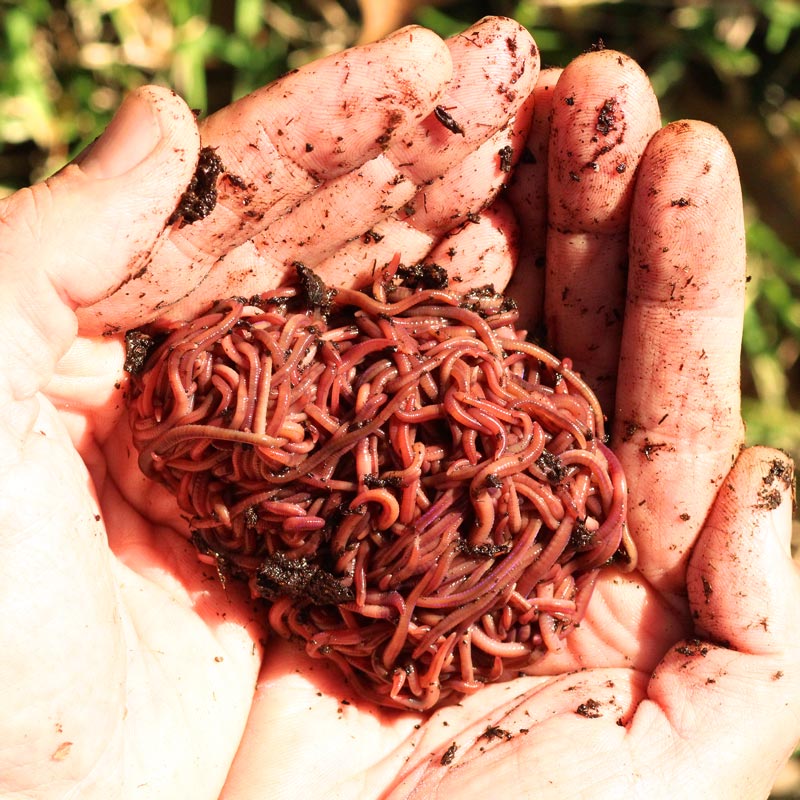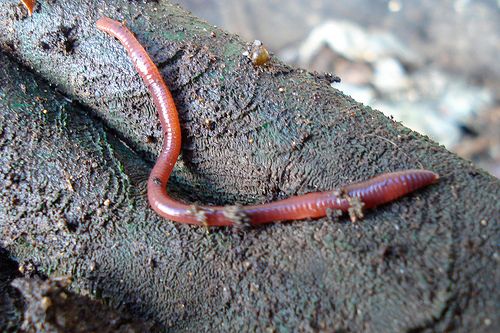Professional Lawn Care Help Powered by Lake Hickory Bait for Stunning Results
Professional Lawn Care Help Powered by Lake Hickory Bait for Stunning Results
Blog Article
Red Wigglers: The Unsung Heroes of Organic Waste Recycling
Red wigglers, or Eisenia fetida, work as essential agents in the natural waste recycling procedure, changing disposed of materials right into useful vermicompost. Their efficient break down of organic issue not only boosts dirt top quality but additionally adds to sustainable waste management techniques. As the world significantly seeks options to fight waste build-up and enhance farming productivity, comprehending the duty of these worms becomes important. What devices enable them to flourish in compost settings, and exactly how can they be efficiently used in both domestic and business settings? Checking out these questions discloses the wider ramifications of vermicomposting in our eco-friendly landscape.
What Are Red Wigglers?
The impressive resilience of red wigglers, medically referred to as Eisenia fetida, highlights their vital function in natural waste recycling. These tiny, reddish-brown earthworms are commonly discovered in disintegrating raw material, such as garden compost stacks and manure loads. Lake Hickory Bait. Unlike various other earthworm types, red wigglers grow in nutrient-rich settings and are extremely efficient at damaging down natural products, making them vital for vermicomposting

(Red Wiggler Express)Along with their function in waste decrease, red wigglers add to dirt health by boosting dirt framework and oygenation with their delving activities (Lake Hickory Bait). Their existence in composting systems not only enhances decomposition prices however likewise advertises a sustainable approach to throw away monitoring, illustrating their importance in eco-friendly preservation initiatives
Benefits of Composting With Worms
Composting with worms, especially red wigglers, provides numerous advantages that enhance both waste administration and dirt wellness. These worms effectively break down organic waste, converting it right into nutrient-rich vermicompost that enhances dirt. This procedure increases decomposition, permitting a faster recycling of kitchen area scraps and other organic products contrasted to traditional composting methods.
In addition, the vermicompost generated by red wigglers is brimming with beneficial bacteria, which assist improve soil framework, aeration, and moisture retention. This boosts the overall health of plants, promoting strenuous development and enhanced returns in gardens and agricultural settings. The usage of worms in composting minimizes the production of greenhouse gases, such as methane, contributing to an extra sustainable waste management system.

Just How to Begin Vermicomposting
Developing a vermicomposting system is an uncomplicated process that can generate significant benefits for both waste monitoring and dirt enrichment. To start, select a suitable container, such as a plastic container or wooden box, with appropriate air flow holes to ensure correct air flow. The measurements ought to ideally be around 2 feet by 3 feet, permitting ample area for the worms to prosper.
Following, prepare bed linen product, which can include shredded newspaper, cardboard, or coconut coir. This bed linen should be moistened to produce an appropriate environment for the worms. As soon as the bed linens remains in area, introduce red wigglers (Eisenia fetida) into the bin, generally around one extra pound of worms for each square foot of surface location.
Adhering to the positioning of worms, add natural waste, such as fruit and veggie scraps, coffee premises, and crushed eggshells. With these steps, you will effectively launch a vermicomposting system that contributes to lasting waste management and enhances your soil.
Keeping a Healthy Worm Bin
(Lake Rhodhiss Bait)Maintaining a worm container flourishing requires normal focus and care to make certain the health of the red wigglers and the efficiency of the composting process. Correct maintenance begins with keeping an eye on the wetness levels; the container should perspire yet not waterlogged. A great guideline is to maintain an uniformity comparable to a wrung-out sponge.
Carefully blending the bed linen and food scraps every few weeks protects against compaction and guarantees that all worms have access to oxygen. Furthermore, it is important to feed the worms appropriately.
If the bin comes to be too hot or cool, the worms may come to be stressed. By faithfully handling these factors, one can preserve a durable and productive worm bin.
Influence On Lasting Living
The effective upkeep of a worm container not just benefits the health of red wigglers however additionally contributes dramatically to lasting living techniques. By reusing natural waste, such as kitchen scraps and backyard debris, red wigglers aid draw away considerable amounts of material from land fills. This decrease in waste not only lowers greenhouse gas emissions however also minimizes the ecological concern connected with waste administration.
Moreover, the spreadings created by red wigglers act as a nutrient-rich natural plant food, enhancing dirt wellness and advertising plant growth. This natural option to chemical plant foods sustains sustainable agriculture and gardening techniques, decreasing reliance on artificial inputs that can hurt communities. Furthermore, worm composting promotes recognition of waste administration, motivating people and neighborhoods to embrace even more sustainable habits.

Verdict
In recap, red wigglers serve as important factors to organic waste recycling through their effective disintegration of organic materials. By incorporating vermicomposting into waste monitoring methods, individuals and areas can dramatically decrease waste while promoting ecological sustainability.
Report this page